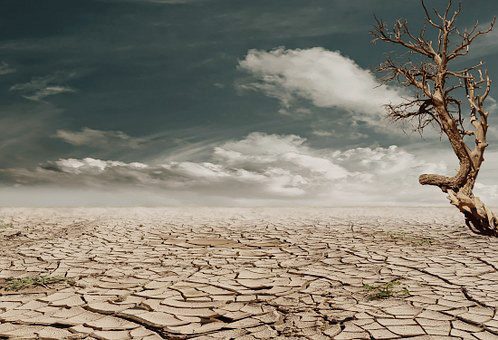Batswana have become accustomed to frequent dry spells to such an extent that droughts are now more like second nature, literary.
To most Batswana, droughts are a “normal” part of the country’s climate; with multiple, multi-year dry spells having been recorded since the 1950s.
But never before has the southern African nation suffered a major climate change crisis as this year when an unprecedented drought, and the attendant water shortages, have wreaked havoc on the country’s normal ecosystem.
So dire is the situation that Deputy Permanent Secretary in the Ministry of Tourism Felix Monggae believes that Botswana is currently in the throes of its worst drought.
He revealed that the Okavango Delta, which is home to thousands of elephants, hippos and crocodiles, has dried up.
“This is the worst drought we have experienced in recent years,” he said.
He said for the first time, the Botswana government has been forced to provide supplementary feeding and water to wildlife in the Okavango Delta as the effects of drought take a toll.
“We have been pumping water into the delta in an effort to save the animals and the farmers’ livelihood,” Monggae told APA.
Monggae said to date the government has drilled 18 additional boreholes in the northwestern part of the country and 10 wells drilled in Okavango Delta for watering wildlife.
According to media reports, thousands of animals have died in the delta due to lack of rain.
In his State of the Nation Address in early November, President Mokgweetsi Masisi revealed that human-wildlife conflict has escalated due to the current drought conditions.
“Additional funds have been approved for the Ministry of Tourism to provide water for wildlife to alleviate the impact of water shortages and augment water points in game reserves and wildlife management areas,” said Masisi.
Monggae expressed concern that should the rains fail to come early the situation looks likely to threaten one of Botswana’s economic mainstays – tourism – as rivers in the northern part of the country have dried up.
Grassland has also wilted, prompting elephants, hippos and cattle to compete for water and grassland.
According to the 2018 World Travel and Tourism Report, at least 2.5 million foreign tourists visited Botswana to photograph elephants.
This contributed significantly to tourism’s 11.5 percent contribution to the country’s gross domestic product, which, in turn, created more than 76,000 jobs.
Monggae said his ministry was working with the international community to address the situation.
“We have received support from non-governmental organizations (NGOs) and some lodge owners in the Okavango Delta are pumping water around their lodges for wildlife,” Monggae said
The official revealed that Botswana has introduced other methods of managing the ever growing number of wildlife such as elephants.
“We have opened up some wildlife corridors and we are hoping that some of the elephants would move to Angola and neighbouring countries to reduce the pressure here,” said Monggae.
Hunting is another method being employed by the Botswana authorities, he said.
“As a method to manage the number of wildlife, hunting is not enough but we believe it is another method that can reduce human-wildlife conflict,” he said.
Botswana, which has the highest number of elephants on the continent, is struggling with over-population.
A local NGO, Elephant Protection Society has sent an SOS across the country and also reached out to the international community for assistance.
According to the organization’s spokesperson Oaitse Nawa, his organization responded promptly after reports emerged that some hippos and elephants were stranded in some drying up lagoons in the Okavango Delta.
Botswana’s Chief Meteorologist, Radithupa Radithupa, said that although the southern part of the country is expected to receive rains in a few weeks, the northern region would receive rainfall later than expected.
He said the country is expected to record temperatures between 38 and 43 degrees Celsius, causing rivers to dry up and triggering further human-animal conflict.
KO/jn/APA


